Attack rolls aren’t the only way to interact with the world in Dungeons & Dragons Fifth Edition. Although the system is very combat-based, it also has rules for any other aspect of fantasy adventure.
Most non-combat challenges in D&D 5e rely on the character’s skill proficiencies. These let a player add their proficiency bonus to an ability check when their character’s training or life experience would be relevant.
In an ideal world, all skills in D&D 5e would be equally good. However, this isn’t the case. Some come up far more often in the average adventuring day than others, cover a much broader array of talents, or have far worse consequences for failure.
A good D&D 5e DM will try and make all of a player’s toolkit useful throughout the campaign, including each of their skill proficiencies. On top of that, players should push to use their talents where possible. With all of that, however, it’s still more crucial to sneak past the guard (Stealth) than to know exactly what sort of bear is killing you (Nature).
Likewise, D&D 5e players should feel free to take the skills that suit their characters, even if I don’t consider them the best. It’s still impressive to bust out Religion, Animal Handling, and Medicine when the time calls for it.
Below are some of the best skills in D&D 5e, starting from the relatively invaluable and going up to the very top tier.
Survival is Crucial – Except in Some Campaigns
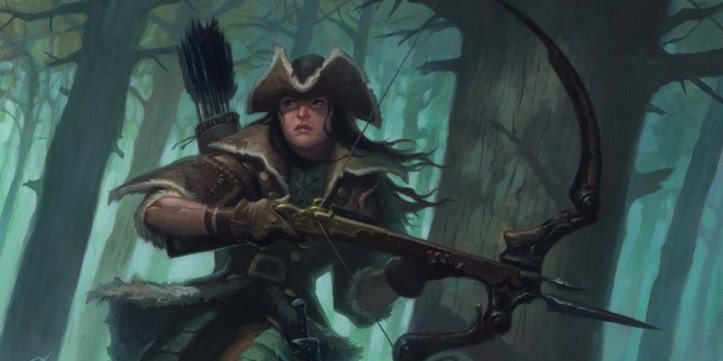
The reason Survival is bottom of this list of the best skills in D&D 5e is that, unlike its other top-tier ilk, it is heavily dependent on campaign. It’s a skill that is almost always vital when called for, it’s just that that might not often happen in the wrong sort of adventure.
The Survival skill in D&D 5e covers the wilderness sense of the word. It covers navigating, tracking, foraging for food (although identifying safe sources might require Nature), noticing the signs of creatures, and avoiding hazards in the environment. In effect, it’s the ‘doing’ counterpart to Nature’s ‘teaching.’
Sadly, it’s not simply a skill that stops you from dying.
Survival is one of the best skills in D&D 5e for any campaign where travel is a key component. The consequences of a poor Survival roll, particularly in a wilderness-based D&D 5e campaign like Tomb of Annihilation, can be catastrophic.
Getting lost can drain the party’s resources; force them into dangerous, unnecessary combats; or make time pressure that much more pressing. Imagine the villain becoming a god because you took a wrong turn.
However, Survival is more limited in D&D 5e campaigns where the wilderness isn’t omnipresent. It might have some uses in a more urban campaign (following someone’s footprints, for instance), but it’ll largely be collecting dust.
Consult with your DM before taking the Survival skill in D&D 5e.
Insight Lets You Know Where You Stand
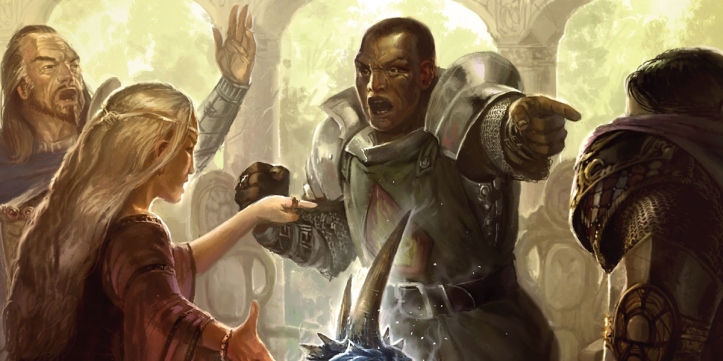
Skills are a huge component of social interaction in D&D 5e. The game lacks a separate resolution system for nonviolent interpersonal conflicts, instead relying on ability checks and roleplay to decide things.
Most of the best D&D 5e skills for social interaction are about imposing yourself on others. They use Charisma to charm, deceive, or scare those you’re talking with. Insight, the main Wisdom social skill, is all about reading the room.
Many players use the Insight skill in D&D 5e as a lie detector, simply asking to make rolls when another character tells them something. However, it has a great many uses besides that.
Insight can tell you about someone’s emotional state, pick up any hidden messages they’re trying to pass along, discern the relationship between two people or the atmosphere of a room, and warn you of impending threat or betrayal.
Unless someone in your party has good Insight, you’re effectively limiting yourself to one half of social interaction in D&D 5e. What’s the point of being able to impose your will on others if you don’t know what they plan to do immediately after?
Deception is for When Honesty is the Worst Policy
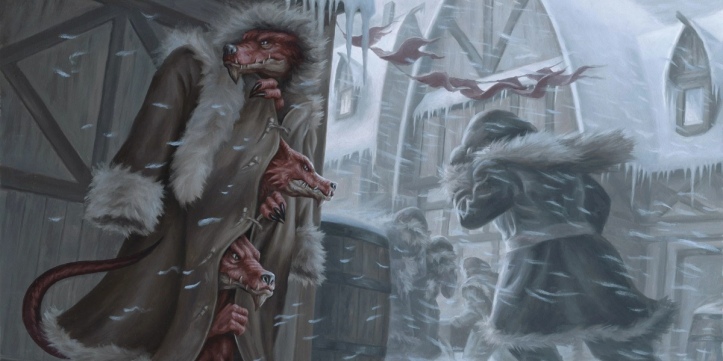
The average D&D 5e party doesn’t just burst into monsters’ homes and kill them, loot historical artifacts, and neglect to pay their taxes. They also, gods forbid, tell lies occasionally.
You can’t always tell the truth in D&D 5e. Sometimes you’re trying to infiltrate somewhere and have to explain yourself to a guard. Sometimes you know painful truths an NPC isn’t ready to here. Sometimes the truth will get others hurt.
The Deception skill covers misdirection, being economical with the truth, and flat-out lying in D&D 5e. Any time you’re trying to keep something back from an NPC, or convince them of something untrue, you’re looking at a Deception check.
Given the number of unsavoury characters D&D 5e PCs have to deal with, being able to lie quickly is ideal.
On top of that, Deception is one of the most important skills in D&D 5e because of how severe the consequences can be. Getting caught in a lie can weaken your position, shatter somebody’s trust, or even risk giving the truth away to the villain.
Athletics is Incredibly Broad

Only one skill proficiency is tied to Strength in D&D 5e, but it’s a significant one. Athletics covers pretty much any physical exertion that requires more than brute force. It’s about technique, stamina, poise, and more.
Athletics is one of D&D 5e‘s best skills because of how much this covers. It comes into play any time characters run, climb, swim, wrestle, or jump (further than they can innately).
You know, things that are common in the average adventuring day.
Characters without Athletics proficiency in D&D 5e are going to suffer when it comes to traversing obstacles or other tests of physical endurance. At least, until they cheat and use magic to overcome those problems (thus spending resources that could instead be used on Fireball).
Furthermore, Athletics is one of two D&D 5e skills with a default combat use baked into the rules. It’s vital for grappling and shoving, both inflicting and resisting (it shares the latter with Acrobatics). Boosting Athletics and pinning foes to the ground is one of the best ways a D&D 5e martial can help their party.
If you’re enjoying this content, consider subscribing to Artificial Twenty: Investigation Check. This is a brand-new TTRPG newsletter from myself, Artificial Twenty. Sign up here to get all the latest in TTRPG news and stay on top of this blog’s content.
Stealth Bypasses What Social Interaction Can’t
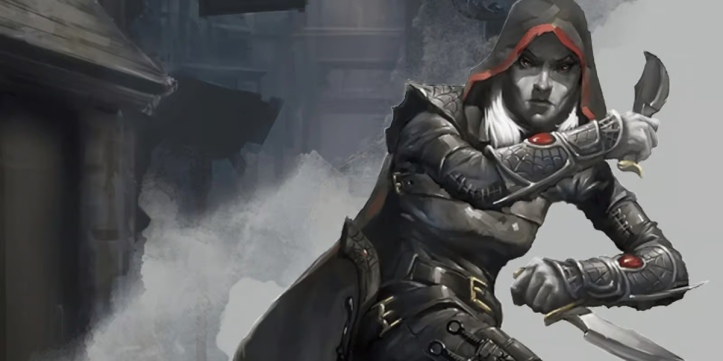
Seeing as D&D 5e is such a combat-heavy game, it might seem weird to bypass fights. However, parties are more than just violent natural disasters in human form (some of the time).
The Stealth skill in D&D 5e covers moving silently, picking hiding spots, blending into a crowd, and anything else that requires subtlety (and isn’t covered by Sleight of Hand). You use it to hide under the bed from a monster and to creep past a guard post without alerting the inhabitants.
There are countless scenarios where hiding is better than fighting in D&D 5e. Taking on a fifty-strong camp with five people, for example, is historically a bad move. Likewise, you might be low on resources, near unacceptable collateral damage, or at risk of drawing much bigger threats if you fight.
Stealth is already one of D&D 5e‘s best skills, but it’s even better for Rogues. Cunning Action lets them hide every turn as a bonus action, which gives Advantage and Sneak Attack. Given that Perception is one of the few skills enemies are often good at, high Stealth is a must-have.
Almost paradoxically, one spell can make Stealth a far less important D&D 5e skill. Pass Without Trace gives a staggering +10 to Stealth rolls, eclipsing even Expertise until very high levels. From third-level onward, certain characters can almost trivialise group stealth situations.
At the same time, it’s helpful to keep the Stealth skill high in D&D 5e in case of resource depletion, solo missions, or a dreaded low roll.
Persuasion is the Go-To Social Skill
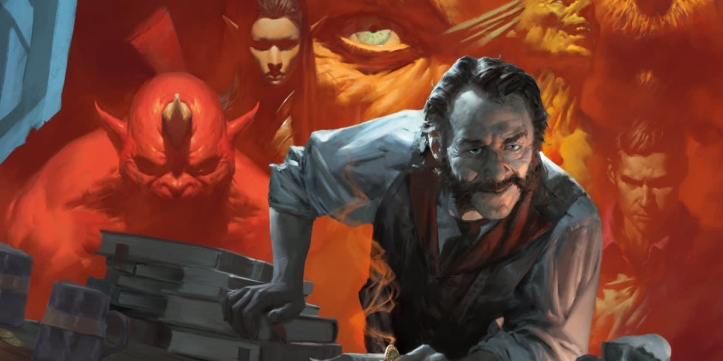
Unless you do play D&D 5e as a violent murderhobo, you’re going to interact socially with a huge chunk of the game’s NPCs.
Even those who are benevolent won’t always fold to your demands. You might need them to take something of faith, convince them of one course of action, or push for something they’re reluctant about. Persuasion is such a good D&D 5e skill because it carries these situations.
Persuasion in D&D 5e is useful when talking to shopkeepers, guards, ambivalent NPCs, trusted allies, and everything in between. Think in real life how often you need to get others to see your point of view. Now quintuple that, and you’re approaching how often it comes up in D&D.
Bar none, Persuasion is the best social skill in D&D 5e. Unless you’re particularly underhanded, it will come up more often than Deception and Intimidation.
Some Persuasion rolls in D&D 5e, such as getting a discount on an item, are minor. Some, like convincing the villain to turn their back on evil, are a much bigger deal.
Entire campaigns can hinge on a high Persuasion check more often than any other skill in D&D 5e.
Perception is Omnipresent
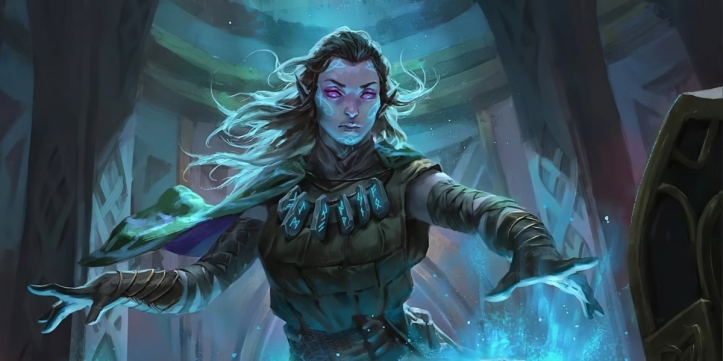
For experienced players, there was never going to be anything else as the most important skill in D&D 5e to be proficient in. For new players, however, Perception might seem innocuous.
It is impossible to overstate how much Perception dominates the average D&D 5e game. The only way to see the world (in most cases) is from the DM’s descriptions. Often, Perception is the DM’s way of giving you the most helpful and beneficial descriptions.
Perception is an invaluable D&D 5e skill for noticing anything. An object out of place. Blood on an NPC’s clothes. An attacker hiding in the room. Something a little strange in the sky. The smell of meat cooking in the distance. The sound of singing, battle, or total silence. That an NPC is wearing a disguise.
It’s vital for all this and more as a D&D 5e skill. Failing a Perception check can turn a winnable combat into a one-sided slaughterfest, miss invaluable clues in an investigation, miss out on priceless magical loot, or worse.
On a social note, many DMs call for or allow Perception checks when Investigation would be more appropriate. It would already be D&D 5e‘s best skill without this, but you might as well double down where you can.
Perception is one of the few D&D 5e skill proficiencies I would say almost any character should take. It’s too invaluable on literally anybody, given how much can hang in the balance. If you choose not to take Perception (which is valid), I’d make sure the opportunity cost is worth it.
These have been seven of the most important skills in D&D 5e for any character to take. They’re far from mandatory, and your party should be trying to cover as many bases as possible between you. Nonetheless, these are pretty excellent on many characters in many campaigns.
If you’ve enjoyed this article, please leave it a like, share it with your loved ones, and check out more Artificial Twenty content like the suggestions below. Thank you.
For other vital build choices in D&D 5e, check out ‘The Best (and Worst) Warlock Eldritch Invocations in D&D 5e‘.
Alternatively, ‘The Best Rogue Races in D&D 5e‘ might be the guide for you if you want to flat-out excel with skills.